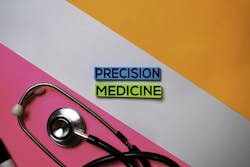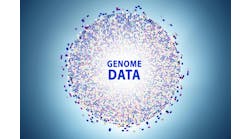The University of California, Berkeley and UC San Francisco have jointly launched a program in “computational precision health,” a new field at the intersection of medicine, statistics and computation.
By creating a joint faculty group between UC Berkeley and UCSF, the two universities said they would simultaneously advance computing and data science with biomedicine and health, enabling solutions that would not have been imagined by either discipline alone.
The two universities will develop new methods for data-driven clinical care, early detection and intervention, new ways to predict outcomes, and new targeted treatments which are both more effective and have fewer side effects. One goal is to transcend traditional boundaries among institutions, disciplines and scholarly communities.
The program will train researchers to design, build and test innovations such as machine learning, digital health and clinical decision support systems within real-world clinical and public health settings to ensure that solutions meet real-world needs.
Recognizing that algorithms are currently being created that too often exacerbate rather than mitigate racial and other biases, the program will seek to ensure that equity, fairness, accountability and transparency will be hallmarks of all of its educational and research activities. A Ph.D. degree program is anticipated by 2023 that will be jointly conferred by UC Berkeley and UCSF, leveraging the institutions’ research strengths: computer science and statistics at Berkeley, health care and health sciences at UCSF, and population and public health sciences at both campuses.
A gift of $50 million has been provided to UCSF and Berkeley by an anonymous donor to support the international search and hiring of four new faculty members in the next year and initiate development of the graduate program. The two institutions have committed to collectively secure an additional $100 million in funding from other sources such as philanthropy, federal grants and industry partnerships.
The joint program is being led by co-directors from both campuses who have expertise in medicine, public health and data science: Ida Sim, M.D., Ph.D., professor of medicine at UCSF, and Maya Petersen M.D., Ph.D., associate professor of biostatistics and epidemiology at Berkeley.
“The current evidence-based approach in medicine has led to health interventions and treatments that work – on average – for selected and often non-representative patients,” said Sim, a primary care physician and informatics researcher, in a statement. “Many patients and patient populations face risks to their health from the use of data that are incomplete, data systems and infrastructure that are not well connected, and inherent bias in how data are collected and analyzed. We can work to address these issues by equipping our students to understand the underlying contexts of equitable health care while simultaneously developing computational solutions to help instead of harm,” she said.
Petersen and Sim believe that advanced data analytics and digital infrastructures are needed to allow next-generation computational health solutions to learn from every patient intervention and enable every patient to benefit from the latest data and evidence on successful health interventions. This vision can only be achieved, they say, if the underlying computational and analytic tools are conceived, tested and validated for the healthcare needs of diverse individuals and communities.


